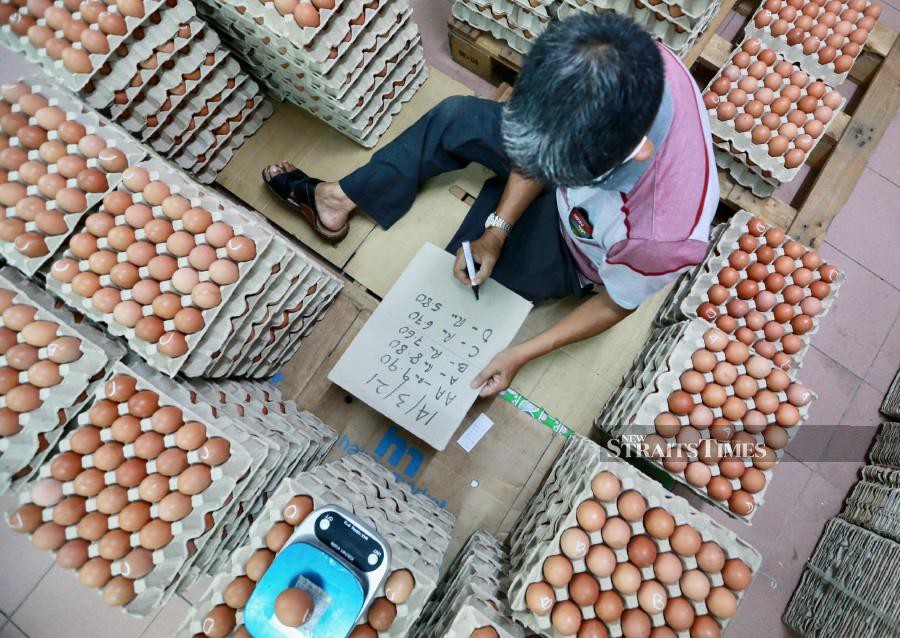 March 17, 2021
March 17, 2021
GEORGE TOWN: The Consumers' Association of Penang (CAP) has urged the authorities to investigate all poultry farms in the country to ensure that they comply with food safety regulations.
This follows a recent report on the import of eggs from a farm in Kuala Selangor being suspended by Singaporean authorities as they were found to be contaminated with salmonella enteritidis bacterium.
CAP president Mohideen Abdul Kader said the authorities should also look into how chickens were reared, which could have contributed to the contamination.
"We urge the authorities to set up a committee to investigate the monitoring system with regards to food safety," he said today.
He advised consumers to cook their eggs thoroughly before consuming. The bacterium salmonella enteritidis can cause diarrhoea, abdominal pain, fever, nausea and vomiting.
Mohideen said the incident showed that some Malaysians were not conscious about food safety.
"It is strange that such an incident was not discovered by our local authorities earlier even though it is estimated that Malaysians consume 30 million eggs daily. Given the situation, Malaysian consumers may have unknowingly consumed the contaminated eggs."
The main pieces of legislation regulating food safety in the country are the Food Act 1983, Food Regulations 1985 and Food Hygiene Regulations 2009, aimed at protecting the public against food-related hazards and frauds, to promote safe preparation, handling, distribution and the sale of healthy and high quality food.
As food safety has to be maintained from production to consumption, many ministries and agencies are involved in the process. Among them are the Health Ministry, Agriculture and Agro-based Industry Ministry, local authorities and Customs Department (for import and export of food).
Mohideen said some of the incidences where Malaysian produce was rejected in foreign countries included:
* In 2020, Singaporean authorities recalled winter melon strips from Malaysia as it was found to contain sulphur dioxide that exceeded the maximum limit stated in the Singapore Food Regulations;
* In 2019, bottled mineral water was recalled by the Singaporean authorities. The particular bottled mineral water was found to contain Pseudomonas aeruginosa – a common bacterium that is found in faeces, soil, water and sewage;
* In 2018, iceberg lettuce was recalled by Singaporean authorities after it detected high levels of pesticide in the vegetable imported from a Malaysian farm;
* In 2017, China rejected fruits from Cameron Highlands due to the presence of living modified organisms (LMO). LMO is defined as any living organism that has a combination of genetic material obtained through modern biotechnology;
* In 2016, Malaysian prawns, mostly from Penang aquaculture farms, were rejected by the US government due to the presence of banned antibiotics (nitrofuran andchloramphenicol); and,
* In 2015, some 300 batches of vegetables – mostly leafy greens – and fruit were stopped from being sold in Singapore, after pesticide residues found on samples exceeded levels allowed by the authorities. It is said that three to five per cent of vegetables and fruit from Malaysia exceeded pesticide limits set by the Singaporean authorities.
Source: https://www.nst.com.my/news/nation/2021/03/674035/cap-how-safe-are-our-eggs?topicID=1&articleID=674035
